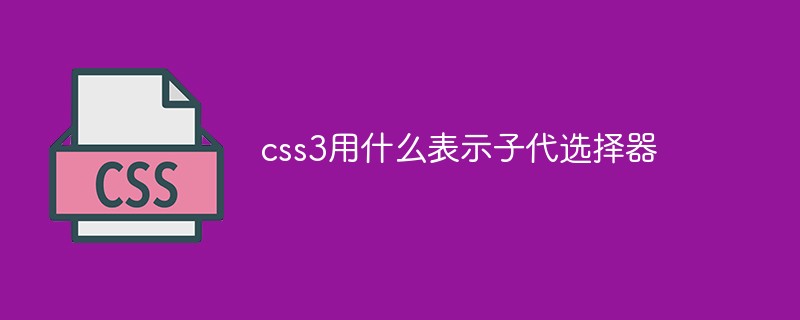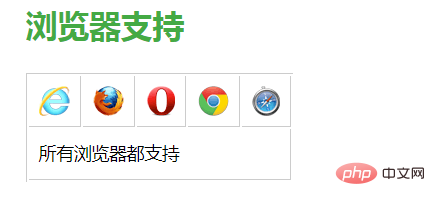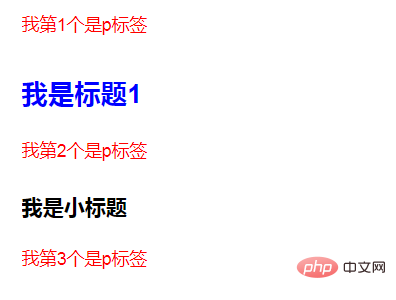
In css3, the ">" symbol (child conjunctive symbol) is used to represent the descendant selector. The syntax "E>F{...}" is used to select all direct child elements F that are E elements. And set styles for it; the descendant selector can only select child elements, not grandchild elements.

The operating environment of this tutorial: Windows 7 system, CSS3&&HTML5 version, Dell G3 computer.
In css3, the ">" symbol (child combiner) is used to represent the descendant selector.
Subconjuncts can have whitespace characters on both sides, which is optional. Therefore, there is no problem with the following writing:
E > F{sRules}
E> F{sRules}
E >F{sRules}
E>F{sRules}The descendant selector is used to select all elements F that are direct children of the E element and set styles for them.
If you don't want to select any descendant elements, but want to narrow the scope and select only the child elements of an element.
Compared with descendant selectors, child selectors (Child selectors) can only select elements that are child elements of an element.
Different from the containing selector (E F), the descendant selector can only hit child elements, not grandchildren.

##Example
Select allelements whose parent is a
div > p
{
background-color:yellow;
}<style>
.demo > p{color:red;}
.demo > h3{color:blue;}
</style>
<div class="demo">
<p>我第1个是p标签</p>
<h3>我是标题1</h3>
<p>我第2个是p标签</p>
<h4>我是小标题</h4>
<p>我第3个是p标签</p>
</div>
css video tutorial)
The above is the detailed content of What does css3 use to represent descendant selectors?. For more information, please follow other related articles on the PHP Chinese website!
 css3 tutorial
css3 tutorial
 What are the css3 gradient properties?
What are the css3 gradient properties?
 jsreplace function usage
jsreplace function usage
 Apple store cannot connect
Apple store cannot connect
 linux packet capture command
linux packet capture command
 What is a hidden element in jquery
What is a hidden element in jquery
 After the computer is turned on, the monitor shows no signal
After the computer is turned on, the monitor shows no signal
 How to solve the problem of garbled characters when opening a web page
How to solve the problem of garbled characters when opening a web page